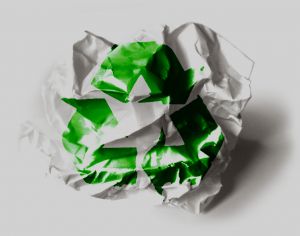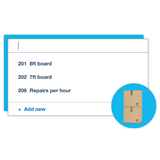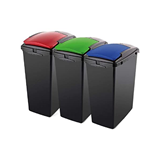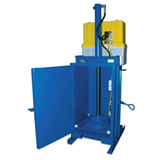New waste taxes, currently being introduced in Queensland and being considered by other states, could help to further fuel these new markets.
The Queensland tax will see businesses charged $35 per tonne for general waste, and up to $150 per tonne for hazardous material, and the revenues will go towards the development of a waste processing facility at Caloundra South.
Such facilities are popping up all over the country. A proposed new recycling plant in the Hunter Valley will convert industrial waste into alternative products and fuels.
A plant in Ballarat has also started using waste sawdust and woodchips to generate electricity.
A national survey of the plastics recycling industry carried out last year showed that Australian consumers and industry recycled a record 282,032 tonnes of plastic – a rate of 18.5 per cent, well up from 15.3 per cent in the previous year.
The recycling industry suffered last year after the prices of recycled materials such as bottles, paper, aluminium and cardboard fell by up to 40 per cent, because of a slump in Chinese demand for recycled materials.
But demand has recovered slightly since then, and the public has not stopped recycling – behaviour partly motivated by environmental concerns, and partly by landfill taxes.
The figures are also on the rise because the overall amount of waste being thrown away is rising sharply – levels across Australia increased by 31 per cent between 2003 and 2007.
And upcoming legislation on electronic waste – computers, printers and other electrical equipment – is likely to kick-start a whole new sector of the market.
These regulations should be seen as a spur to industry rather than a millstone, according to Peter Garrett Chairman of the Environment Protection and Heritage Council.
"Managing waste is not just about protecting our environment and our health. It is also about contributing to our country's long term economic growth and creating opportunities for jobs growth and innovation as we move towards a low emissions future," he said earlier this month.
But Tony Khoury, executive director of the Waste Contractors and Recyclers Association of New South Wales, said that although business is booming the government could be doing more to help.
"There has been an increase in the amount of people recycling but we've not seen any real impact of state policies," he said.
The government in New South Wales and other states are introducing landfill taxes, but revenues from these taxes go to state coffers, and Khoury would like to see a little more help for industry.
"We'd also like to see a better approach to the policing of the regulation too," he said. "The government is very good at introducing regulation but not so good at overseeing it."
Of the 282,032 tonnes of plastics collected for recycling 164,085 tonnes (58.2 per cent) was reprocessed in Australia and over 117,947 tonnes (41.8 per cent) was exported for reprocessing.
Industry figures say that if more of this reprocessing stays onshore it will be better for business as technologies and skills are developed that can be exported around the world.













